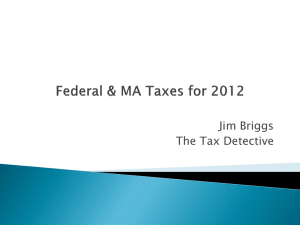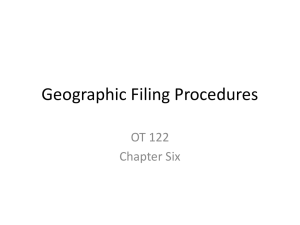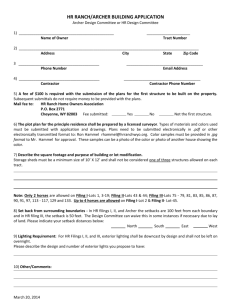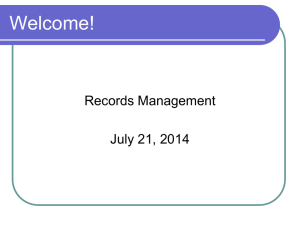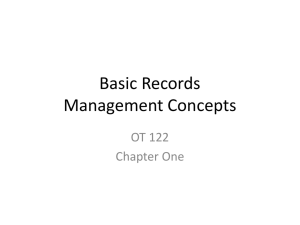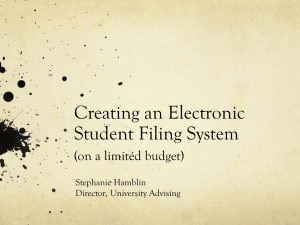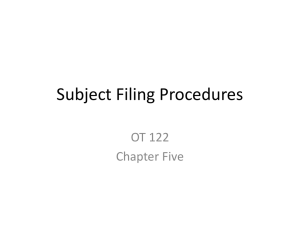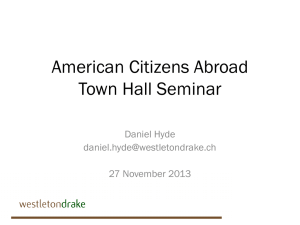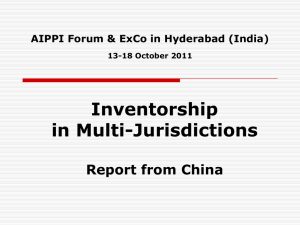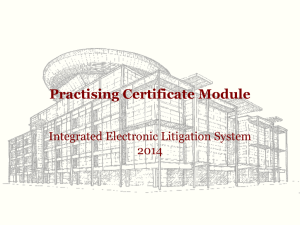Workshop IV *How to reconcile indigineous rights with the
advertisement
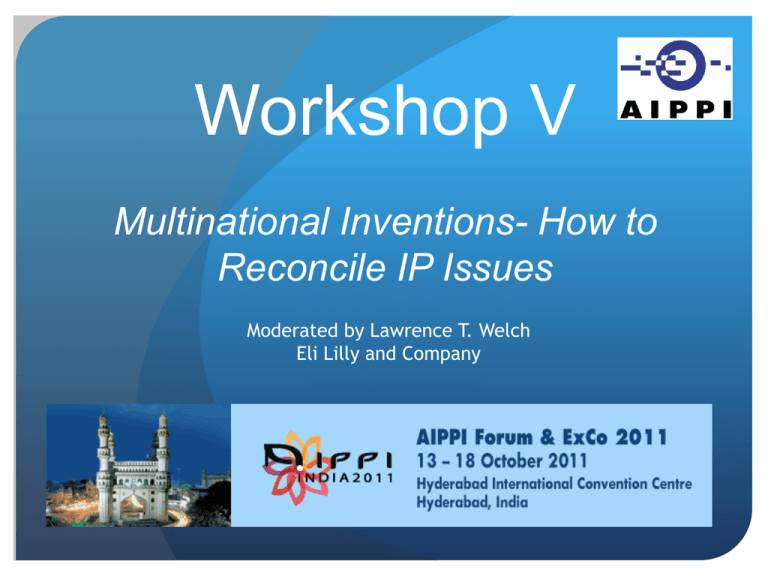
Workshop V Multinational Inventions- How to Reconcile IP Issues Moderated by Lawrence T. Welch Eli Lilly and Company The Problem • “Business is global, but laws are local.”* • Research now spans the globe, and researchers are collaborating on projects often resulting in inventions with inventors from more than one country • Laws in US, Europe, Japan, China, India, etc. vary on key points • Security clearances/ requirement for filing first in the country where the invention is made • Inventor remuneration • Definition and application of rules of inventorship * Luncheon Address of James Pooley, WIPO at the Intellectual Property Owners Annual Meeting, Los Angeles, Sept 12, 2011 Lawrence T. Welch June 2010 2 Variability on key elements* • Security clearance provisions in some countries • US • China • India • Korea • Certain European countries (e.g., UK, Spain, Germany) • No security provisions in other countries, e.g., • Japan • Canada • Australia • Mexico • Certain European countries (Austria, Czech Republic, Slovak Republic, Cyprus, Switzerland) • Taiwan 3 Consequences of failure to comply vary by country as well… • Loss of patent rights • Criminal sanctions • Excuses for inadvertent errors? 4 Foreign filing licenses instead of filing • Available in US • But, applying for a license in another country first could violate US law • Available in China, but could take several months • Applying for a license in another country first apparently does not violate the law • Not available in some countries, e.g., Spain, Russia 5 Variability on inventor’s remuneration • Inventor’s remuneration not required, in, e.g., • US • India • Inventor’s remuneration can be required in, e.g, • Japan • China • Europe (e.g., e.g. Austria, Bulgaria, Denmark, France, Germany, Greece, Hungary, Italy, the Netherlands, Norway, Portugal, Spain, Sweden and the United Kingdom)* • Korea • Nature and amount of compensation vary greatly by country 6 Issues include • What happens if there is a joint invention involving US and Chinese inventors • Filing first in US would violate Chinese law • Filing first in China would violate US law • Request for foreign filing license in China could violate US law • Request for foreign filing in US followed by actual filing in China may satisfy both country’s laws • How do you apportion inventor remuneration? • How do you reconcile differing notions of inventorship? 7 Panelists Qing Ge (Liu Shen, China) Volkmar Henke (Eisenführ, Speiser & Partner, Germany) K. Vivek Reddy (VIVEK REDDY LAW CHAMBERS, India) Jeff Ranck (Microsoft, India) 8
